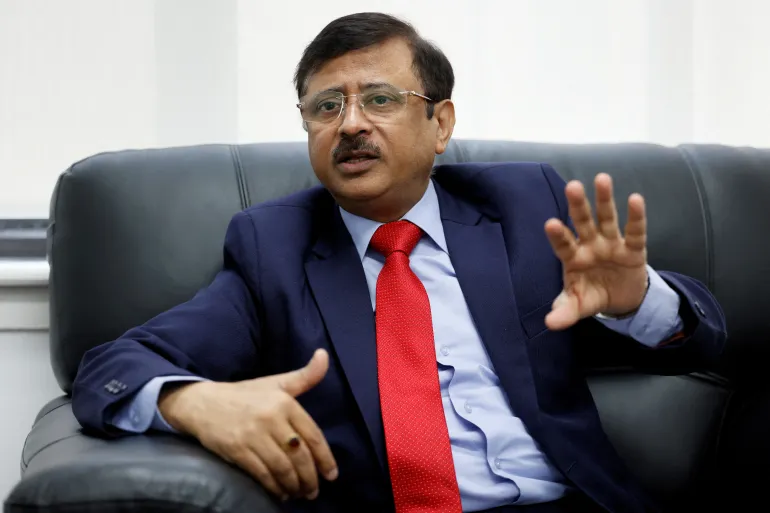Montreal, Canada – Sanjay Kumar Verma, India’s high commissioner to Canada, rejected the allegations of his involvement in the 2023 killing of a prominent Sikh separatist leader. He also criticized the Canadian government for making “politically motivated” accusations.
In an interview with Canadian network CTV News on Sunday, Verma was asked whether he had anything to do with the assassination of Hardeep Singh Nijjar.
“Nothing at all, no evidence presented, politically motivated,” he replied.
The interview comes just days after Canadian police announced that they uncovered evidence of Indian government agents’ involvement “in serious criminal activity in Canada,” including links “to homicides and violent acts.”
On Monday, Canadian Prime Minister Justin Trudeau’s government announced that it would expel six Indian diplomats and consular officials, including Verma, after authorities identified them as “persons of interest” in Nijjar’s killing.
Killing of Sikh Leader Nijjar
In June 2023, someone fatally shot Nijjar, a Canadian citizen. He was outside a Sikh temple where he served as president in Canada’s westernmost province of British Columbia.
He served as a leading advocate for the Khalistan movement, a Sikh campaign for a sovereign state in India’s Punjab region, which India views as a threat to its national security.
His killing shocked Canada and plunged ties between New Delhi and Ottawa to new lows. This deterioration followed the Canadian government’s announcement in September of last year that it was investigating the involvement of Indian government agents.
India has rejected the allegations, describing them as “preposterous imputations” and calling on Canada to show evidence to back up its claims.
Verma Asserts India’s Stance
On Monday, the Royal Canadian Mounted Police (RCMP) stated that it directly presented evidence to Indian government officials. The RCMP urged their cooperation in stemming the violence and requested that law enforcement agencies work together to address these issues.
During Sunday’s interview with CTV News, Verma, the Indian high commissioner to Canada, repeatedly said that he has not received any evidence.
Verma stated that India “commits not to carry out extrajudicial killings on any territory.”
He also said he had never directed or coerced individuals into gathering information on pro-Khalistan activists in Canada. “I, as high commissioner of India, have never done anything of that kind,” he told CTV News.
“Do we want to know what pro-Khalistani elements in Canada are doing? Yes, we do. That’s my national interest. That’s my whole concern with Canada, which is trying to tear up Indian territory.
“If the Canadian politicians are so novice that they want me not to know what my enemies are doing here, I’m sorry – then they don’t know what international relations is all about,” said Verma, stressing that the information gathering was “all overt”.
“We read the newspapers, we read their statements,” he added.
Sikh Community Faces Ongoing Threats
But members of the Sikh community in Canada – the largest Sikh diaspora in the world, numbering around 770,000 people – have said they faced threats for decades. They have accused the Indian government of trying to silence them.
“For 40 years, our community has been working to bring foreign interference from India to light,” Moninder Singh, an associate of Nijjar’s in British Columbia, told Al Jazeera last year.
Sikh advocates in the United States have also faced threats. Last week, the US Department of Justice charged an Indian government official for his involvement in a failed plot to kill a prominent advocate for Sikh separatism in New York.
US authorities filed “murder-for-hire and money laundering charges” against Vikash Yadav for his alleged involvement in the plot to assassinate Gurpatwant Singh Pannun.
Pannun, a US citizen, is the legal adviser for the group Sikhs for Justice and a vocal supporter of the Khalistan movement.
“The defendant [Yadav], an Indian government employee, allegedly conspired with a criminal associate. He attempted to assassinate a US citizen on American soil for exercising their First Amendment rights,” FBI Director Christopher Wray said in a statement.
Sikhs for Justice said the US indictment demonstrated Washington’s “commitment … to protect the life, liberty and freedom of expression of the US Citizen at home and abroad”.
India’s Ministry of External Affairs stated that the government no longer employs Yadav.
This news is sourced from Aljazeera and is intended for informational purposes only.






![Ukrainian and Russian flags with soldier silhouettes representing ongoing conflict. [Image via Atlantic Council].](https://southasiatimes.org/wp-content/uploads/2026/02/2022-02-09T000000Z_1319661209_MT1NURPHO000HXCNME_RTRMADP_3_UKRAINE-CONFLICT-STOCK-PICTURES-scaled-e1661353077377.jpg)